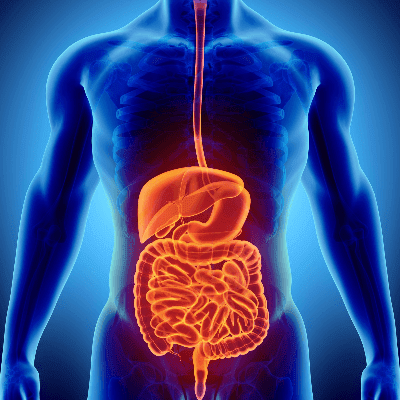Inflammatory Bowel Disease : Definition, Types, Symptoms, And Causes

What is Inflammatory Bowel Disease (IBD)?
IBD is a blanket term for a group of disorders characterized by chronic inflammation of the intestines.Types of IBD include:
The disorder ulcerative colitis causes the intestines to become inflamed. Inflammation and sores occur along the superficial lining of your large intestine and rectum with this illness.
Crohn's disease is a chronic inflammatory bowel illness. The hallmark of this type of IBD is inflammation of the digestive tract lining, which can often damage the deeper layers of the digestive tract.
Symptoms of ulcerative colitis and Crohn's disease include stomach pain, rectal bleeding, tiredness, diarrhea, and weight loss.
Crohn's disease is a chronic inflammatory bowel illness. The hallmark of this type of IBD is inflammation of the digestive tract lining, which can often damage the deeper layers of the digestive tract.
Symptoms of ulcerative colitis and Crohn's disease include stomach pain, rectal bleeding, tiredness, diarrhea, and weight loss.
IBD is debilitating, and it can sometimes result in life-threatening complications.
The following signs and symptoms are common to both Crohn's disease and ulcerative colitis:
Symptoms
Inflammatory bowel disease symptoms are determined by the intensity of inflammation and where it occurs. The signs and symptoms could be minimal or severe. There will almost certainly be times of active illness followed by periods of remission.The following signs and symptoms are common to both Crohn's disease and ulcerative colitis:
- Unintended weight loss
- Diarrhea
- Reduced appetite
- Fatigue
- Blood in your stool
- Abdominal pain and cramping
When should you see a doctor?
If you have a persistent change in your bowel habits or any of the signs and symptoms of inflammatory bowel disease, see your doctor. Irritable bowel disease is a significant ailment that can have life-threatening implications in some people, despite the fact that it is rarely fatal.Causes
Irritable bowel disease has yet to be identified as a contributing factor. Previously, doctors suspected diet and stress, but they now know that these things can aggravate IBD but aren't the cause.
One possible cause is immune system dysfunction. An abnormal immunological reaction allows your immune system to assault your digestive tract cells as well when it tries to fight off an invading virus or bacteria.IBD is more common in persons who have family members who have the disease, which suggests that heredity may play a role. Most persons with IBD, on the other hand, do not have this familial history.
One possible cause is immune system dysfunction. An abnormal immunological reaction allows your immune system to assault your digestive tract cells as well when it tries to fight off an invading virus or bacteria.IBD is more common in persons who have family members who have the disease, which suggests that heredity may play a role. Most persons with IBD, on the other hand, do not have this familial history.


Comments
Post a Comment